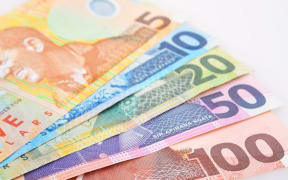Kiwisaver funds claiming to be ethical or sustainable are being urged to put their money where their mouth is, with calls for a industry-wide standard.
The lack of such a standard had been blamed for the dwindling number of funds and customers who were willing to invest their retirement savings in them.
When Kiwisaver was launched in 2007, ethical or sustainable funds were tipped to become a growth industry.
These types of funds often shunned the so-called "sin industries", like gambling or tobacco, and concentrated on green technologies.
But seven years later they had failed to live up to the hype.
Several funds have since come and gone. There were now just five left and together were worth about $40 million - a tiny fraction of the $23 billion invested in the more than 200 Kiwisaver schemes on offer.
The latest to wind up was ASB's First Choice Global Sustainability Fund.
The bank's head of wealth products Roger Clayton said the fund attracted only 500 members at its peak and the research required to run it was expensive and not something people were prepared to pay for.
"Demand is bigger overseas, Australia it's growing and in Europe it's huge.
"But here in New Zealand at this point our research, and certainly the experience, show that when you take into account the pricing it just does not support itself," he said.
Sustainable Business Network chief executive Rachel Brown disagreed.
She said its own survey of 1400 people in June 2104 and found 90 percent of them wanted a sustainable Kiwisaver option, while 97 percent would move to one if it offered the same returns as their current scheme.
She said demand was there. It was just not being met by Kiwisaver providers.
"There's a mismatch between their criteria and the options that are being presented through ethical funds at the moment.
"The difficulty people are having who are looking at investing in this space is getting good information on the funds, so that's another barrier," she said.
A promoter of sustainable business Barry Coates, who had also helped set up ethical investments in Britain, said the definition of what was ethical or sustainable was decided by fund manager, which was confusing for consumers.
He said there was a need for an industry-wide standard, like the Fairtrade brand.
"That would enable social marketing and promotion to really build the confidence that the public can put their money into investments that won't destroy the planet or harm people," he said.
Investment adviser and former board member of the Responsible Investment Association Australasia Rodger Spiller agreed.
He said the association already had such an accreditation, but not one Kiwisaver provider had signed up to it yet.
"The Fairtrade-type accreditation, I think that would be a great idea in the sense that it would increase awareness and understanding of responsible investment Kiwisaver options," he said.
Grosvenor Financial ran one of the biggest socially responsible Kiwisaver funds in the country.
Chief executive David Beattie said he would sign up to such an accreditation, in principle, but it already followed the United Nations guidelines for socially-responsible investment and he was not sure another would help it attracted more clients.
Meanwhile, the Sustainable Business Network's Rachel Brown said change was in the air.
She was talking with five banks looking at setting up a new breed of ethical or sustainable Kiwisaver schemes that aimed to invest in hot areas like renewables, smart transport and organics.
She hoped they would be up and running next year, she said.


